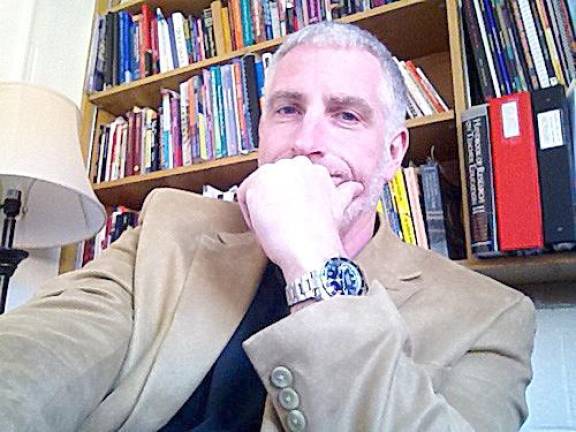Library to host program on Critical Race Theory on Oct. 23.
Warwick. The discussion will be led by Dr. Aram deKoven, the United States Coast Guard Academy’s Chief Diversity Officer and director of the Office of Inclusion and Diversity.

Critical Race Theory has recently been all over the news. In fact, it has become quite a hot button topic, even a trigger phrase for some.
But what exactly is Critical Race Theory?
What are some opposing perspectives and what do policy makers and educators do with Critical Race Theory?
Come to a conversation where you can hear the perspectives of a seasoned equity, diversity and inclusion professional.
Dr. Aram deKoven will lead the discussion at Albert Wisner Public Library on Saturday, Oct. 23, at 10:30 a.m.
deKoven was born and raised in Westchester County. He holds undergraduate degrees in psychology and music from the State University of New York-Oswego, a Master’s degree in Human Resources Management from Mercy College and a second Master’s degree in Education and a doctorate in Curriculum and Instruction from Cornell University.
He is the United States Coast Guard Academy’s Chief Diversity Officer and director of the Office of Inclusion and Diversity.
At the academy, deKoven works with diverse teams from across the base to raise critical awareness, collect and track disaggregated data, modify and/or create equity-minded policy, and to etch into all strategic planning documents a clear and unambiguous commitment to equity and inclusion.
Essentials
The program will be offered in-person and via Zoom. Register online at www.albertwisnerlibrary.org or call the Help Desk at 986-1047, ext. 3.
‘These are uncomfortable conversations’
In a 2016 YouTube video from U.S. Coast Guard Academy Alumni Association, deKoven was asked about his role as the academy’s Chief Diversity Officer and what were one or two challenges that may get in your way from really leaning forward on this?
What follows is a transcript of a section of that interview:
“One thing I fear is that they’ll come a point where people will no longer want to engage in these conversations. People will say, ‘I’ve had enough. I’m uncomfortable and I’m tired of talking about race or about gender, about sexual orientation or gender identity.’ My hope is that we keep the throttle down. There’s enthusiasm right now for these conversations and I’m trying to keep that momentum going.
“I’m hoping that people can experience their discomfort, because these are uncomfortable conversations, for me included. I’ve been doing this for a long time and I’m uncomfortable all the time. But I am OK with it because through my discomfort, I learn and I grow. I fear that people will make the argument that if they just don’t talk about inequity, they won’t create a problem that didn’t exist beforehand. I am quick to remind folks that these problems exist. They are here all the time and by not talking about them we make them worse, not better.
“Conversation is absolutely the way forward, but it also needs to be informed conversation. It has to be guided by some theoretical framework or understanding that moves the conversation in a productive direction. My hope is that people don’t see this as a punishment. They see it as an opportunity to be sitting at the table to have courageous conversations about race, gender, sexual orientation and gender identity.”